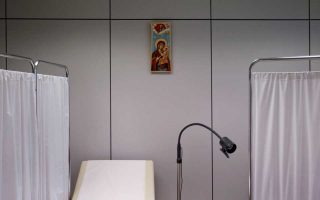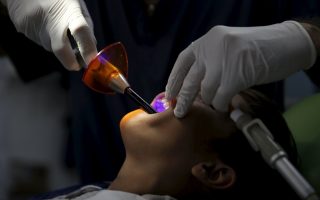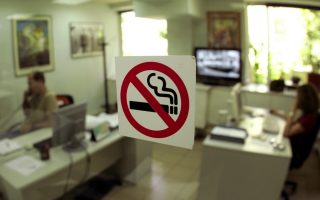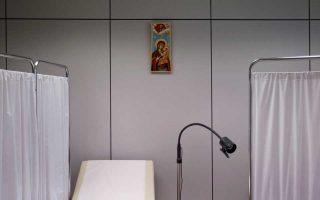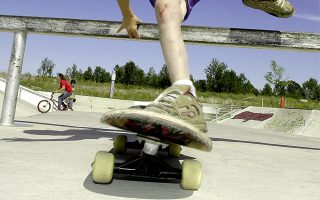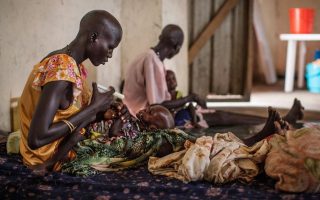Volunteers at refugee relief facility brace for bad weather
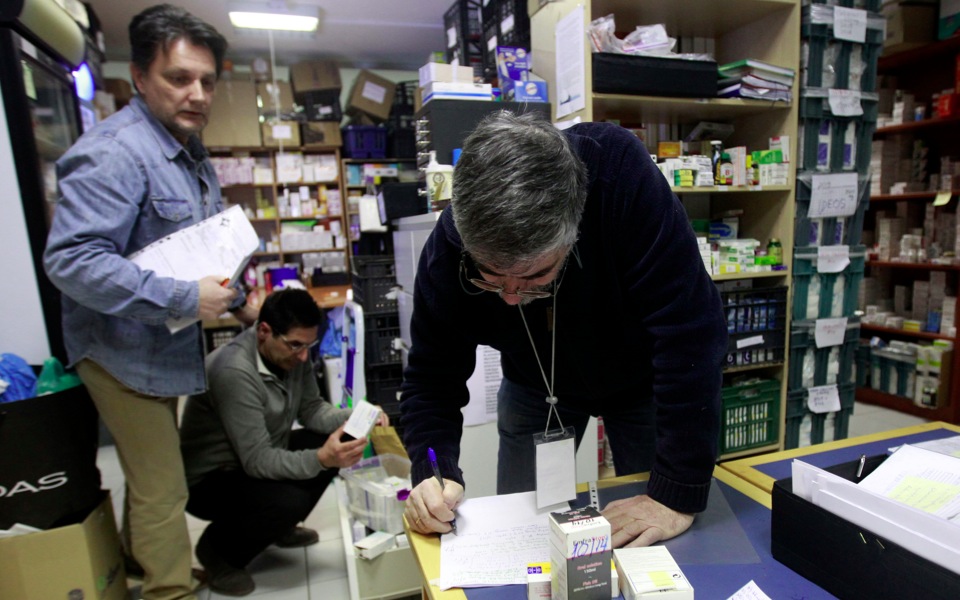
“The temperature inside the Olympic hockey stadium near the old Athens airport at Elliniko, which houses refugees, had started to drop. There was no hot water in the shower. I saw a newborn baby. Its Afghan mother had been gripped by labor pains on board the boat and she gave birth on a Lesvos beach. It was not possible for the baby to take a bath there because it would freeze, so I took it home along with its parents. We gave it a warm bath and something to eat before putting it down to sleep. When the family left the island two days later, we felt like relatives saying goodbye.”
The stories shared by volunteers helping the thousands of migrants and refugees arriving in the country, such as this relayed to Kathimerini by George Vichas, a cardiologist and director of the Metropolitan Community Clinic at Elliniko, are deeply moving. But they are also highly revealing of the huge challenges facing refugees as weather conditions worsen and state support remains sorely lacking.
“The Elliniko venue is expected to house refugees and migrants also in the coming months. A few days ago, some 500 people were temporarily sheltered here. But how are they expected to stay here if the place is not heated?” Vichas says.
At the reception center of the Metropolitan Community Clinic, Vichas has set up a second clinic. “On a daily basis, we receive help from one or two pediatricians, two to three pathologists, a cardiologist, an orthopedic surgeon and a pulmonologist,” Vichas says. Their work is aided by six to seven volunteers from the Fair Planet nonprofit organization. “They are very experienced in dealing with refugees as many of them have worked abroad,” he says.
As winter sets in, the clinic is trying to collect sleeping bags and thermal clothes and blankets. “We need people’s support, things will be pretty tough. The state is regrettably absent from all this,” Vichas says, adding that doctors from the Hellenic Center for Disease Control and Prevention (KEELPNO) only drop by the center for two hours between Monday and Friday.
“When 500 refugees arrived here on a Saturday evening, they were examined by volunteer doctors,” he says.
Nikitas Kanakis, president of Doctors of the World Greece, says the organization is concerned that, as the weather worsens, up to 200,000 refugees could find themselves trapped in Greece. “We are trying to prepare ourselves also for that scenario and have asked for help from branches in other countries,” he says.
Swiss volunteers are helping in Idomeni, near Greece’s northern border with the Former Yugoslav Republic of Macedonia (FYROM), while volunteers from the Netherlands and France are helping out on Chios and Lesvos.
On an operational level, Doctors of the World is preparing small flexible groups that can reach more refugee facilities.
“Our doctors are at the end of their tether. Over the past months they have been examining about 200 people per day. State care is nowhere to be seen. Greek society is providing clothes, food and care for refugees. How is the state helping?” says Kanakis, who is also critical of the European Union’s failure to deal with the mounting crisis.
“Why does the EU not create a safe passage for refugees instead of leaving them at the mercy of traffickers and the Aegean Sea?”
